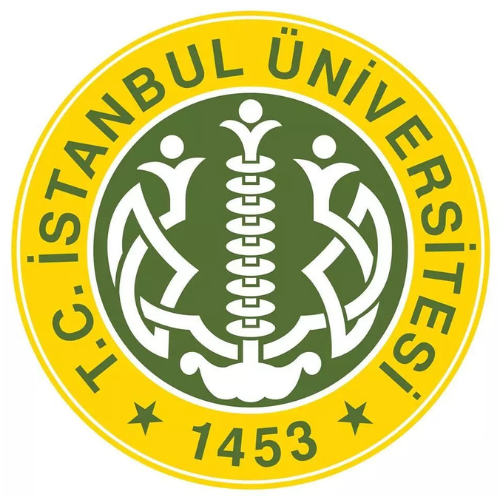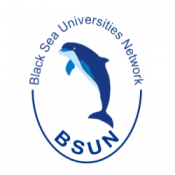16th Conference of Rectors from the Black Sea Region | 11-12 July 2024 | Istanbul, Turkey
“Summit of the Future for the Black Sea Region”



A Methodological Approach for Addressing the Future of the Extended Black Sea Region from the Caucasus to the Balkans
The 75th Anniversary of the United Nations was marked in June 2020 with a declaration by Member States that included 12 overarching commitments along with a request to the Secretary-General for recommendations to address both current and future challenges.
In September 2021, the Secretary-General responded with his report, Our Common Agenda, a wake-up call to speed up the implementation of the Sustainable Development Goals and propel the commitments contained in the UN75 Declaration. In some cases, the proposals addressed gaps that emerged since 2015, requiring new intergovernmental agreements.
The report, therefore, called for a Summit of the Future to forge a new global consensus on readying ourselves for a future that is rife with risks but also opportunities. The General Assembly welcomed the submission of the “rich and substantive” report and agreed to hold the Summit on 22-23 September 2024, preceded by a ministerial meeting in 2023. An action-oriented Pact for the Future is expected to be agreed by Member States through intergovernmental negotiations on issues they decide to take forward.
The BSUN Congress 2024 theme – “Summit of the Future for the Black Sea Region” was selected by harmonizing the overarching commitments of the UN with the emerging themes and trends in higher education systems globally that interest equally the Rectors of BSUN, interested stakeholders, decision-makers, and key actors in higher education.
Selected Key Topics:
- Account for the future: new pathways and best practices for promoting science-based decision making in the society;
- Better respond to global shocks: the role of universities for a stronger international response playbook for complex regional and global shocks;
- Meaningfully include young people: pathways for systematically include young people in the regional and global decision-making;
- Measure human progress more effectively: metrics beyond GDP so that decisions on debt relief, concessional funding, and international cooperation take account of vulnerability, well-being, sustainability, and other vital measures of progress.
- Vision of digital technology as a motor for human progress in the Black Sea Region that can deliver full benefits while minimizing potential harm;
- Integrity in public information: possible approaches and initiatives to achieve an information ecosystem (notably online) that is inclusive and safe for all, perhaps via a code of conduct;
- Reform of the international financial architecture: to ensure it delivers more effectively and fairly for everyone and particularly the Black Sea Region, including through objectives that are aligned with the SDGs, debt sustainability, a global financial safety net, and more;
- Peaceful and sustainable use of outer space: proposals and initiatives to update norms governing the use of and behaviour in space so that it is peaceful, secure and sustainable for the benefit of all;
- A new agenda for peace: proposals and initiatives to update our understanding of all forms and domains of threats and adapt our toolbox to prevent and manage hostilities on land, at sea, in space, and in cyberspace;
- Transform education: proposals and initiatives to achieve a fundamental shift in how education is seen and treated including in relation to the purpose of education; the learning environment; the teaching profession; harnessing digital transformation; investing in education; and multilateral support for quality education for all.
- BSEC 2.0: adapt basic national and regional cooperation practices on data, communications, innovation, strategic foresight, performance and results, and more, so it is better positioned to support all the above and face the challenges of tomorrow for the extended Black Sea Region from Caucasus to the Balkans and South-East Europe.
Thinking about the future is always leading towards thinking or sketching some utopian situations or systems. The utopian tradition is one of the earliest expressions of modern futures studies, developing normative and preferred narratives, capable of exploring our desires, hopes, and future possibilities.
As the Black Sea Universities Network (https://bsun.org/), the basic principles of a possible Academic Utopia for our region might the followings:
- All humans have the fundamental right to have access to the most important discoveries and achievements in science and culture in all fields of research.
- There are large or crucial ecosystems that are fundamental to life on Earth and the evolution of humans and must be secured as intangible heritage.
- The efforts and creative energies of humans must be oriented towards new challenges to be in harmony with the general laws of evolution in nature.
- With all efforts of the humanity at Global scale, at a certain level of knowledge, way of thinking and mentalities, there are issues that could not be solved. These issues must be identified, isolated, and secured to not generate endless conflicts.
- Education must be a fundamental concern for the proper evolution of humanity.
Using the above representation of the proposed utopian approach we must evaluate the different aspects of our society and proceed with the following steps:
- Critically diagnose and seek to address limitations on each of the evaluated aspect of the society.
- Substantively, point to ways of deepening and expanding understandings on the details of the evaluated aspect of the society
- Methodologically, move beyond critique to pluralize and diversify ways of thinking and knowing, as a precondition for expanding our capacity to imagine and understand transformational futures.
The proposed approach is to take each of the 11 key topics to address both current and future challenges and to use as reference the 5 principles of the proposed utopia for critically diagnosis of each aspect, substantiate by deepening and expanding understanding and move beyond critique to pluralize and diversify ways of thinking and knowing to generate transformational futures on each aspect.
